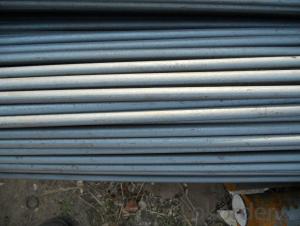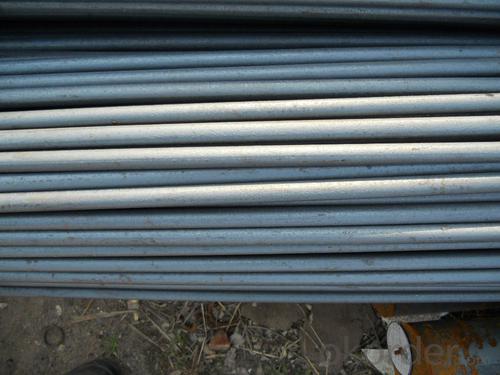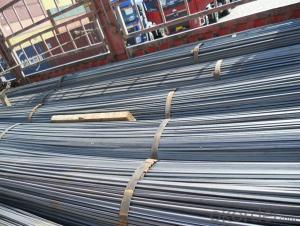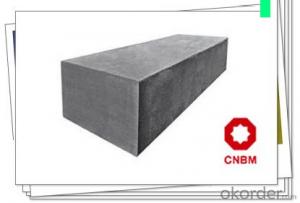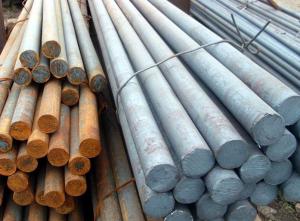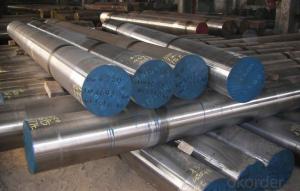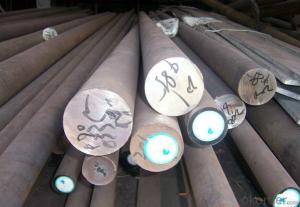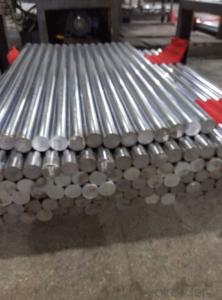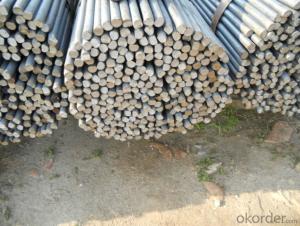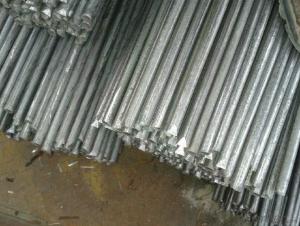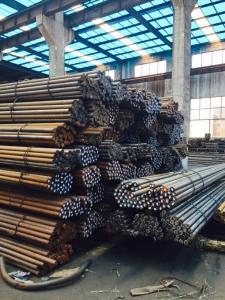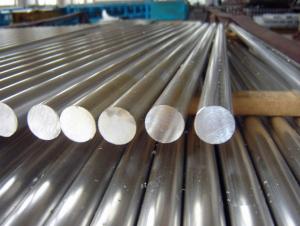Round Bar Chromed Steel Round Bar-Steel Round Bar
- Loading Port:
- Tianjin
- Payment Terms:
- TT OR LC
- Min Order Qty:
- 100 m.t.
- Supply Capability:
- 30000 m.t./month
OKorder Service Pledge
OKorder Financial Service
You Might Also Like
Product Description:
OKorder is offering S45C Round Bar Chromed Steel Round Bar-Steel Round Bar
at great prices with worldwide shipping. Our supplier is a world-class manufacturer of steel, with our products utilized the world over. OKorder annually supplies products to European, North American and Asian markets. We provide quotations within 24 hours of receiving an inquiry and guarantee competitive prices.
Product Applications:
S45C Round Bar Chromed Steel Round Bar-Steel Round Bar
are ideal for structural applications and are widely used in the construction of buildings and bridges, and the manufacturing, petrochemical, and transportation industries.
Product Advantages:
OKorder's S45C Round Bar Chromed Steel Round Bar-Steel Round Bar
are durable, strong, and resist corrosion.
Main Product Features:
· Premium quality
· Prompt delivery & seaworthy packing (30 days after receiving deposit)
· Corrosion resistance
· Can be recycled and reused
· Mill test certification
· Professional Service
· Competitive pricing
Product Specifications:
1. Material: Alloy structural steels, carbon structure steels, alloy tool and model steels,etc.
2. Process: EAF + LF + VD + Forged + Heat Treatment (optional)
3. Delivery condition:Hot forged +Rough machined (black surface after Q/T)+ Turned (optional)
4.Technical Data: Chemical Composition, Physical Properties and Mechanical Testing.
5. Test: Ultrasonic test according to SEP 1921-84 3C/c.
Chemical Composition:
C | Si | Mn | P | S | Cr | |
45Cr | 0.42-0.49 | 0.17-0.37 | 0.6-0.9 | Max0.035 | Max0.035 | 0.3 0.4 |
S45C | 0.42-0.48 | 0.15-0.35 | 0.6-0.9 | Max0.030 | Max0.035 | |
1045 | 0.43-0.5 | 0.15-0.35 | 0.6-0.9 | Max0.030 | Max0.050 |
FAQ:
Q1: Why buy Materials & Equipment from OKorder.com?
A1: All products offered byOKorder.com are carefully selected from China's most reliable manufacturing enterprises. Through its ISO certifications, OKorder.com adheres to the highest standards and a commitment to supply chain safety and customer satisfaction.
Q2: How do we guarantee the quality of our products?
A2: We have established an advanced quality management system which conducts strict quality tests at every step, from raw materials to the final product. At the same time, we provide extensive follow-up service assurances as required.
Q3: How soon can we receive the product after purchase?
A3: Within three days of placing an order, we will begin production. The specific shipping date is dependent upon international and government factors, but is typically 7 to 10 workdays.
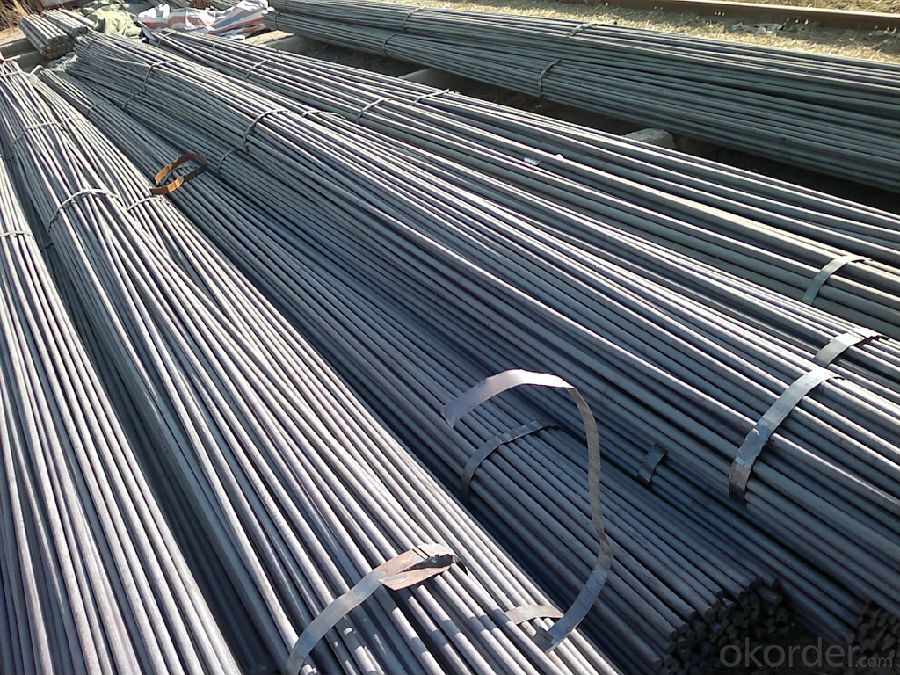
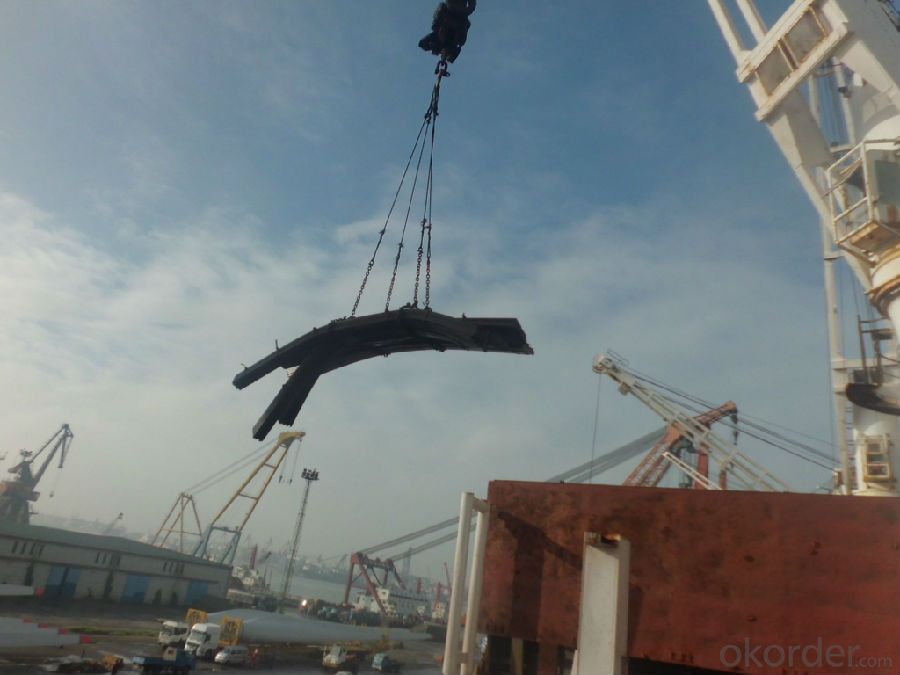
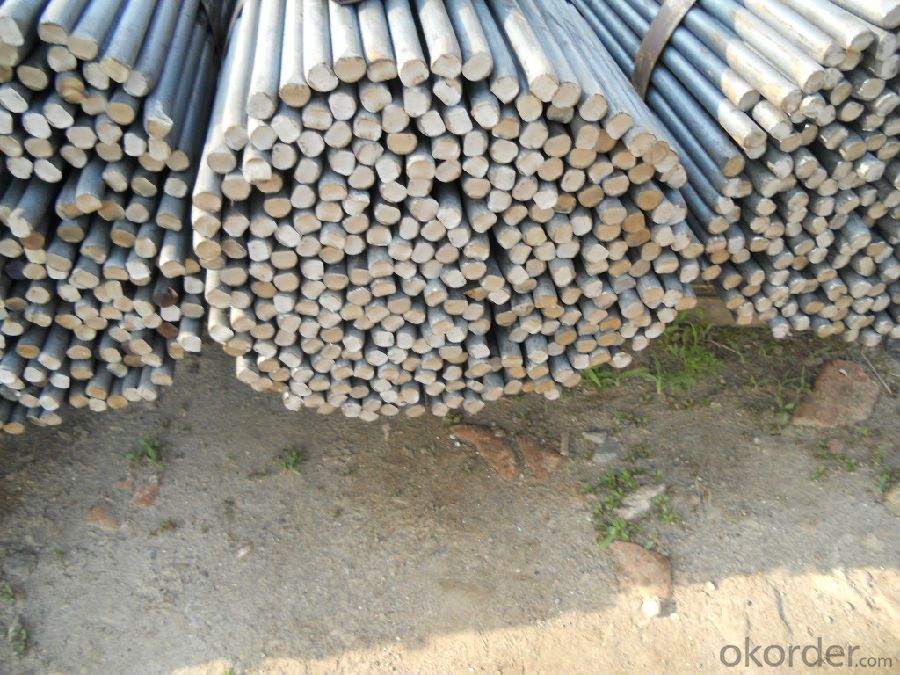
- Q: What are the typical price ranges for steel round bars?
- The typical price ranges for steel round bars vary depending on factors such as the diameter, length, grade, and market conditions. However, generally speaking, the price range for steel round bars can range from $0.50 to $3 per pound or more.
- Q: How do steel round bars differ from other types of steel bars?
- Steel round bars differ from other types of steel bars primarily in their shape and versatility. Unlike other steel bars such as square or flat bars, steel round bars are cylindrical in shape and have a circular cross-section. This unique shape allows for greater flexibility and adaptability in their usage. One of the main advantages of steel round bars is their ability to withstand high levels of stress and pressure. Due to their circular shape, they distribute weight and pressure evenly, making them ideal for applications that require durability and strength. These bars are often used in construction, manufacturing, and engineering projects where structural integrity is crucial. Another key difference is the ease with which steel round bars can be machined and manipulated. Their cylindrical shape allows for easy drilling, cutting, and shaping, making them highly versatile and suitable for a wide range of applications. They can be easily welded, bent, or formed into various shapes, giving them an advantage over other types of steel bars in terms of customization. In terms of appearance, steel round bars also have a distinct visual appeal. The smooth and cylindrical surface of these bars offers a sleek and polished look, making them aesthetically pleasing in architectural and decorative applications. Overall, steel round bars stand out from other types of steel bars due to their shape, versatility, and strength. Their ability to withstand high levels of stress, ease of machining, and appealing appearance make them a popular choice in various industries.
- Q: Can steel round bars be used in the manufacturing of gears?
- Certainly, gears can utilize steel round bars in their manufacturing process. The utilization of steel round bars is quite common in gear manufacturing given their remarkable attributes such as formidable strength, long-lasting durability, and remarkable resistance to wear and tear. The rounded shape of these bars allows for effortless machining and molding into the desired gear design. Furthermore, steel round bars possess exceptional mechanical properties, including impressive tensile strength and commendable resistance to fatigue, which are crucial for gears that encounter heavy loads and repetitive movements. Additionally, steel round bars can undergo heat treatment to further enhance their hardness and toughness, rendering them ideal for demanding gear applications. All in all, steel round bars are a highly favored option in gear manufacturing due to their adaptability and dependability.
- Q: What are the advantages of using nickel-titanium alloy steel round bars?
- There are several advantages of using nickel-titanium alloy steel round bars. Firstly, this alloy offers high strength and excellent corrosion resistance, making it suitable for various applications in industries such as aerospace, automotive, and medical. Additionally, nickel-titanium alloy steel has shape memory properties, allowing it to return to its original shape after deformation, making it ideal for applications requiring repeated bending or twisting. Furthermore, this alloy exhibits superelasticity, meaning it can withstand large amounts of strain without permanent deformation, providing enhanced durability and longevity. Overall, the unique combination of strength, corrosion resistance, shape memory, and superelasticity makes nickel-titanium alloy steel round bars a versatile and advantageous material choice.
- Q: What are the different types of steel round bar alloys for improved toughness?
- Improved toughness is a characteristic associated with various steel round bar alloys. These alloys are specifically formulated to enhance the steel's capacity to withstand impact and resist deformation. Some commonly utilized steel round bar alloys for improved toughness comprise: 1. 4140 Alloy Steel: Renowned for its exceptional toughness and high tensile strength, this alloy finds application in areas that necessitate high impact resistance, such as automotive parts, gears, and shafts. 2. 4340 Alloy Steel: Similar to 4140, 4340 alloy steel offers remarkable toughness and strength. It is frequently employed in applications requiring high fatigue resistance, such as aircraft landing gear components and crankshafts. 3. 8620 Alloy Steel: This alloy is ideal for situations that demand both toughness and good wear resistance. It is commonly employed in gears, pinions, and other high-stress components. 4. 52100 Alloy Steel: Recognized for its high toughness and excellent wear resistance, 52100 alloy steel is frequently used in bearings, valve parts, and other heavy-duty applications. 5. H13 Tool Steel: While predominantly used in hot work applications, H13 tool steel is also acknowledged for its toughness and ability to withstand high impact loads. It is often employed in die casting dies, extrusion dies, and forging dies. 6. A2 Tool Steel: A2 tool steel is another alloy celebrated for its toughness and good wear resistance. It is commonly utilized in cutting tools, punches, and dies. These examples represent merely a fraction of the numerous steel round bar alloys meticulously engineered to deliver enhanced toughness. The selection of the appropriate alloy is contingent upon the specific requirements of the application and the desired level of toughness.
- Q: Are steel round bars suitable for construction applications?
- Yes, steel round bars are a great option for construction purposes. They are widely utilized in the construction field because of their robustness, longevity, and adaptability. These bars offer exceptional support to structures and are commonly employed in the construction of buildings, bridges, and infrastructure projects. Steel round bars have the ability to endure heavy loads and provide stability, making them suitable for a variety of construction applications. Furthermore, they can be effortlessly manipulated, cut, and joined together through welding to meet specific project requirements. Their resistance to corrosion also makes them ideal for both indoor and outdoor construction projects. Overall, steel round bars are an optimal choice for construction endeavors due to their strength, durability, versatility, and user-friendly nature.
- Q: How do steel round bars compare to aluminum or steel tubing?
- Each material, steel round bars, aluminum tubing, and steel tubing, possesses distinct properties and applications. Therefore, it is crucial to comprehend the characteristics of each material prior to making a comparison. Steel round bars consist of solid cylindrical bars crafted from steel. Renowned for their strength and durability, they are suitable for heavy-duty applications. These bars exhibit exceptional tensile strength and can withstand significant levels of stress and pressure. Consequently, they find extensive use in construction, manufacturing, and engineering projects where strength and structural integrity are paramount. Moreover, steel round bars exhibit high resistance to corrosion, rendering them appropriate for outdoor and marine applications. In contrast, aluminum tubing is constructed using lightweight and corrosion-resistant aluminum. This material is recognized for its outstanding thermal and electrical conductivity. It is commonly employed in applications where weight reduction is crucial, such as in the aerospace and automotive industries. Additionally, aluminum tubing is frequently utilized in the construction of heat exchangers and electrical wiring systems due to its conductivity properties. Steel tubing, similar to steel round bars, is composed of steel, but it possesses a hollow structure. Known for its versatility and wide range of applications, steel tubing is available in various shapes and sizes, such as round, square, and rectangular, enabling the creation of diverse structural designs. Construction, automotive manufacturing, and industrial applications frequently employ steel tubing due to its high strength and rigidity, which make it suitable for applications necessitating structural support or the ability to endure heavy loads. When comparing the three materials, steel round bars outperform aluminum and steel tubing in terms of strength and durability. Consequently, they are ideal for heavy-duty applications that demand substantial strength and structural integrity. However, steel round bars may be heavier and more costly than aluminum tubing, which is often favored for lightweight applications. Conversely, steel tubing offers versatility in shape and size, permitting greater design options. Ultimately, the selection between steel round bars, aluminum tubing, and steel tubing hinges on the specific requirements of the application, including factors such as strength, weight, cost, and corrosion resistance. It is essential to meticulously evaluate these factors and seek advice from experts to determine the most suitable material for a given project.
- Q: What are the advantages of using alloy steel round bars?
- Alloy steel round bars offer numerous benefits. Firstly, they possess superior strength and durability, surpassing regular steel bars. This quality is particularly advantageous in industries like construction, automotive, and aerospace, where high strength and toughness are crucial. The inclusion of alloying elements enhances their mechanical properties, making them highly resistant to wear, impact, and corrosion. Moreover, alloy steel round bars exhibit exceptional heat resistance. They can endure high temperatures without compromising their strength, making them suitable for environments like furnaces, boilers, and heat exchangers. This attribute extends their service life and reduces the need for frequent replacements. Another advantage lies in the versatility of alloy steel round bars. They can be easily machined, forged, or welded, providing flexibility in design and manufacturing processes. Their ability to be customized to meet specific requirements makes them suitable for a wide range of applications. Additionally, alloy steel round bars maintain good dimensional stability. Even under extreme conditions, they retain their shape and size, ensuring precise and accurate performance. This characteristic is particularly valuable in industries that demand tight tolerances, such as precision engineering and manufacturing. Lastly, alloy steel round bars prove to be cost-effective in the long term. Although they may have a higher initial cost compared to regular steel bars, their enhanced properties and extended service life result in reduced maintenance and replacement expenses. This makes them a more economical choice over time. In conclusion, the benefits of utilizing alloy steel round bars include superior strength and durability, excellent heat resistance, versatility in machining and fabrication, good dimensional stability, and long-term cost-effectiveness. These advantages make them the preferred option in various industries that require high-performance materials.
- Q: What is the weight of a steel round bar?
- The weight of a steel round bar depends on its dimensions, specifically its diameter and length. To calculate the weight, you can use the formula: weight = volume × density. To find the volume of the steel round bar, you can use the formula for the volume of a cylinder: volume = π × (diameter/2)^2 × length, where π is a mathematical constant approximately equal to 3.14159. The density of steel varies depending on the type and grade, but it is typically around 7.85 grams per cubic centimeter (g/cm³) or 7850 kilograms per cubic meter (kg/m³). By substituting the appropriate values into the formula, you can calculate the weight of the steel round bar in the desired unit (grams, kilograms, pounds, etc.).
- Q: What are the advantages of using creep-resistant steel round bars?
- Using creep-resistant steel round bars in various applications has several advantages. Firstly, these bars offer exceptional resistance to high temperatures and prolonged stress exposure, making them ideal for high temperature environments such as power plants, boilers, and engines. Their ability to maintain their mechanical properties at elevated temperatures is a key advantage. Secondly, these round bars possess superior creep strength, allowing them to endure constant stress over extended periods without deformation or failure. This is particularly crucial in applications where components are subjected to continuous stress, such as pressure vessels or structural machinery. The high creep strength ensures the longevity and reliability of these components. Additionally, creep-resistant steel round bars exhibit excellent corrosion resistance. They are often alloyed with elements like chromium, molybdenum, or nickel, enhancing their ability to resist corrosion in harsh environments. This makes them suitable for industries like oil and gas, chemical processing, and marine applications where corrosion is a significant concern. Furthermore, these round bars possess favorable weldability, facilitating easy fabrication and assembly. They can be welded to other components without compromising their mechanical properties, making them versatile and cost-effective for construction projects. Moreover, these round bars offer dimensional stability and high hardness, guaranteeing that components maintain their shape and mechanical properties even under extreme conditions. This characteristic makes them suitable for applications requiring precision and accuracy, such as aerospace and automotive industries. In conclusion, the advantages of using creep-resistant steel round bars include their ability to withstand high temperatures, superior creep strength, corrosion resistance, weldability, dimensional stability, and high hardness. These advantages make them the preferred choice for various industries where reliability, longevity, and performance under harsh conditions are essential considerations.
Send your message to us
Round Bar Chromed Steel Round Bar-Steel Round Bar
- Loading Port:
- Tianjin
- Payment Terms:
- TT OR LC
- Min Order Qty:
- 100 m.t.
- Supply Capability:
- 30000 m.t./month
OKorder Service Pledge
OKorder Financial Service
Similar products
Hot products
Hot Searches
Related keywords
